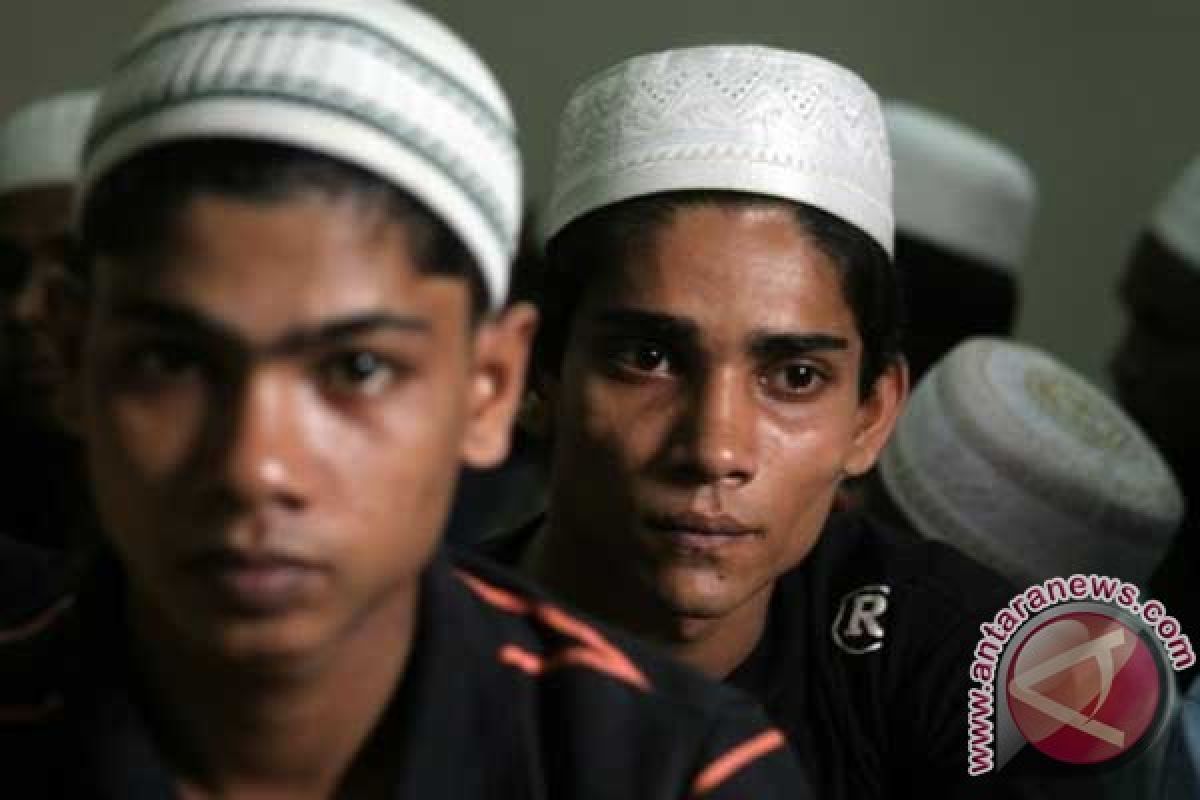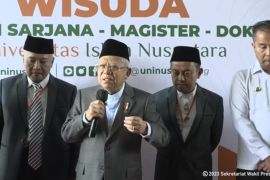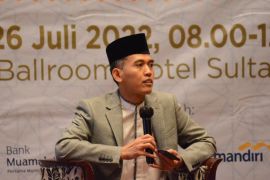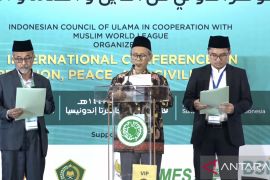"Therefore, the harmony among Indonesia's religious communities will not be disturbed."Jakarta (ANTARA News) - Indonesian Ulema Council (MUI) Chairman Amidhan has assured that the problems facing Rohingya Muslims in Myanmar will not negatively affect the harmony among Indonesian religious groups.
"MUI is working with other councils on cases of defamation, fraud and human rights violations that took place in Myanmar," he said here on Tuesday.
Amidhan stated that the Buddhists in Indonesia also held a protest against the actions of Myanmar government.
"Therefore, the harmony among Indonesia's religious communities will not be disturbed," he added.
However, Amidhan also urged the Muslims in Indonesia to maintain peace and consider the Rohingya issue to be an inter-ethnic problem rather than an inter-faith problem.
Earlier, both MUI and Indonesian Buddhist representatives (Walubi) called for interfaith unity and integrity within Indonesia soon after reports about the conflict in Myanmar arrived.
The leaders of both religious organizations asserted that the Rohingya issue did not stem from religious differences, but from ethnicity-related problems.
MUI and Walubi also expressed appreciation in a letter to Myanmar President U Thein Sein for his efforts to resolve the conflict. However, they requested him to make more concrete diplomatic efforts to resolve the Rohingya issue.
Violence in Myanmar's Rakhine state started with the rape and murder of a young woman by three youths in Yanbye township on May 28, 2012, and the subsequent killing of 10 passengers on a bus in Taungup township on June 3. In the former case, the victim was a Rakhine Buddhist woman, while in the latter, the victims were Muslim men.
Following the two incidents, riots broke out in Sittway, Maungtaw and Buthidaung townships. The rioters torched and destroyed houses, shops and guest houses and also committed murders. Because of the riots, 77 people from both communities lost their lives and 109 people were injured. A total of 4,822 houses, 17 mosques, 15 monasteries, and three schools were burnt down.
The unrest has severely affected both the Rohingya and Rakhine ethnic groups, but the human rights groups have accused Myanmar police and soldiers of persecuting only Rohingya Muslims after the riots.
The Myanmar government considers the 800,000 Rohingya Muslims in the country to be illegal immigrants, despite the fact that their ancestors had settled in the region many decades ago.
(U.A050/INE/KR-BSR/A014)
Editor: Priyambodo RH
Copyright © ANTARA 2012












